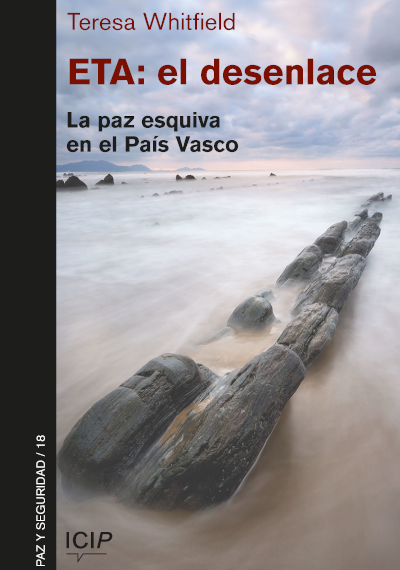
On 20 October 2011, ETA declared a definitive end to armed activity. It did so in accordance with a series of actions agreed in secret with the Spanish government. The efforts to either “defeat ETA terrorism” or “resolve the Basque conflict,” depending on the different interpretations, took more than five decades.
Written by conflict resolution expert Teresa Whitfield and originally published in English in 2014, the book Endgame for ETA presents a detailed account of the long path to the declaration of a definitive cessation of armed activity by the Basque terrorist organization. The new edition in Spanish, under the title ETA: el desenlace, includes an updated review of the process written by the author after a working visit to the Basque Country in September 2022. The volume also includes a chronology and an updated glossary of people and organizations. It is therefore an exhaustive analysis of the Basque conflict that offers information on the complexities of the history and the politics of the Basque Country.
“Many excellent books have been published on different facets of contemporary Basque history and ETA, including those of some of the protagonists involved in the peace efforts that my book addresses. Nevertheless, the aim of my work was very specific. I tried to combine rigorous research, including a level of access to a wide range of political actors, with another type that may have been easier for me as an outsider with a perspective shaped by many years of working on situations of terrorism and armed conflict in other contexts,” Whitfield says of the book.
The text was translated by Andrés Krakenberger, a human rights activist and member of the Human Rights Association Argituz.
About the author
Teresa Whitfield is an independent consultant with over thirty years of experience working and writing on conflict resolution and peacebuilding. From 2016 to 2022, she was Director of the Policy and Mediation Division of the United Nations Department of Political and Peacebuilding Affairs (DPPA).
She began her career as a journalist and writer, a period that included two years in El Salvador, where she wrote a book on the impact of the assassination of six Jesuit priests on the negotiations to end the civil war. During the 1990s, Whitfield spent five years at the UN’s Department of Political Affairs, where she worked on the Central American peace process and other issues, including East Timor and Kosovo.
After leaving the organization in 2000, she worked at the Center for International Cooperation at New York University. She was director of the Conflict Prevention and Peace Forum at the Social Science Research Council from 2005 to 2008. She then returned to the Center for International Cooperation and began working on issues related to the Basque Country with the support of the United States Institute of Peace. She also served as a senior advisor to the Geneva-based Centre for Humanitarian Dialogue, supported the Norwegian Ministry of Foreign Affairs in the Colombian peace process, and taught at Columbia University’s School of International and Public Affairs. From 2015 to 2016, she was Senior Advisor to the President of the International Crisis Group.
